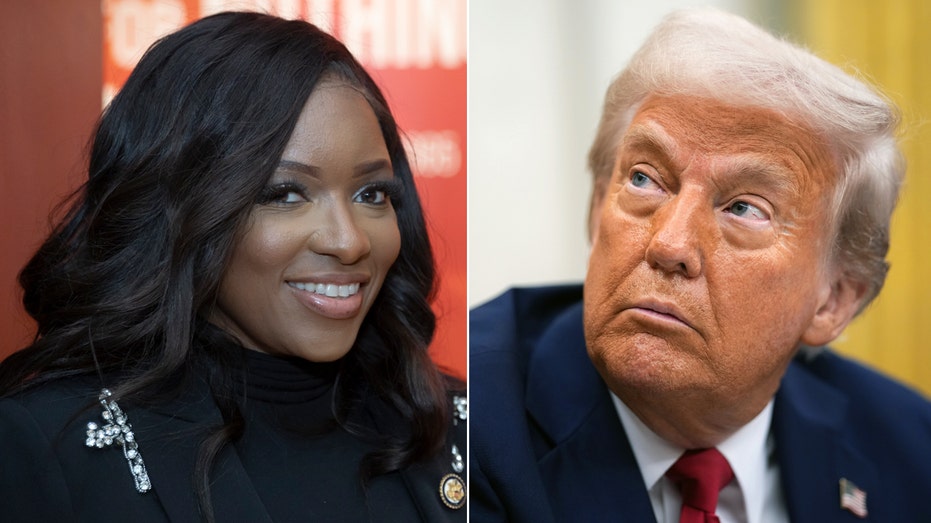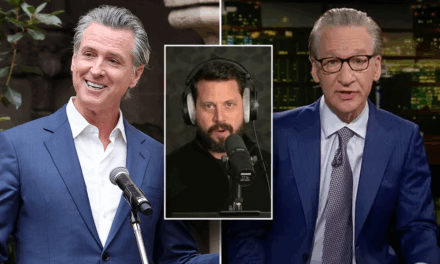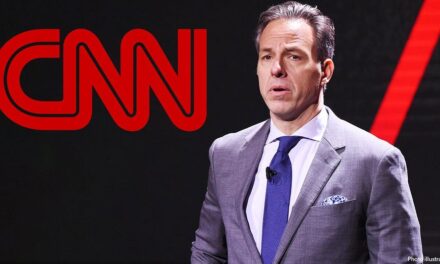In a recent appearance, former President Donald Trump took to social media to express his disdain for what he perceives as the Democratic Party’s leadership contenders, specifically targeting Congresswoman Jasmine Crockett and Senator Bernie Sanders. Trump’s comments, infused with his hallmark bravado, have sparked renewed discussions about the future of the Democratic Party and its potential candidates for upcoming elections.
Jasmine Crockett, a rising star in the Democratic Party, representing Texas’s 30th congressional district, has garnered attention for her progressive policies and outspoken advocacy. However, she has also become a target for criticism from Republican figures, particularly from Trump, who has labeled her as having a “low IQ.” His remarks are emblematic of the broader political strategy employed by the former president, who often relies on personal jabs to undermine opponents.
It appears that Trump is not just focused on Crockett. He took the opportunity to throw shade at Bernie Sanders, the veteran senator from Vermont and self-described democratic socialist, calling him a “nutjob.” Sanders, known for his formidable fundraising efforts, grassroots support, and strong presidential runs, has long been a polarizing figure in American politics. Trump’s withering critique is an indication that he views both Crockett and Sanders as potential threats to his own political ambitions, should they garner more influence within the Democratic Party.
Trump’s comments come at a time when the Democratic Party faces a critical juncture. With the 2024 presidential election nearing, both established politicians and up-and-coming leaders are vying for prominence. Trump’s mockery of Crockett and Sanders could very well be an attempt to capitalize on what he sees as weaknesses in the party’s leadership. His derision reflects a strategy aimed at rallying his base while further sowing discord within the ranks of Democrats.
Crockett, whose rise in politics has been rapid, has gathered a following by tackling issues like voting rights, healthcare reform, and criminal justice reform. Many Democrats see her as a voice for a younger generation eager for change. However, her unfiltered approach and willingness to engage in contentious political debates have made her a target for conservative critiques. Trump’s attack surely aims to diminish her growing influence on the national stage.
On the other hand, Sanders, who has been a major player in infusing progressive policies into mainstream political discourse, is no stranger to attacks from opposing parties. His proposals for universal healthcare and wealth redistribution have been pivotal in expanding the Democratic base but have also put him at odds with more centrist Democrats and Republicans alike. By mocking Sanders as a “nutjob,” Trump looks to mischaracterize the senator’s widespread appeal and to delegitimize his policy perspectives.
The implications of Trump’s mockery stretch beyond just personal attacks; they also signify a broader landscape of division within American politics. Political discourse has become increasingly polarized, and allegations of “low IQ” or “nutjob” behavior are part of a troubling trend where civility gives way to derision. For many voters, these exchanges risk creating an environment where substantive debate about policy takes a backseat to personality clashes.
In the backdrop of Trump’s commentary, there’s a critical question about what direction the Democratic Party will choose as it heads toward the 2024 elections. The competition is heating up, and candidates are feeling the pressure to distinguish themselves from one another while also standing up to the criticisms from the opposition. As leaders like Crockett find their footing, their ability to counter attacks while promoting their progressive platform will be vital to maintaining their appeal.
Meanwhile, it will be interesting to observe how Trump’s words play into the larger narrative surrounding the upcoming elections. While his approach often rallies his base, it may also alienate moderate voters who are exhausted by the constant hostility in the political arena. As the political landscape shifts, there emerge opportunities for new leaders to reinforce their positions amid the criticism.
Furthermore, Trump’s remarks highlight a critical element of campaigning – the art of shaping an opponent’s public image. Political leaders often attack their rivals’ intelligence or mental fitness to undermine public perception, influencing how voters view their policies and capabilities. The vitriol directed at Crockett and Sanders indicates that Trump is keenly aware of the stakes involved as he anticipates a possible rematch with President Joe Biden in 2024.
Trump’s social media influence remains a significant factor in American politics. His ability to connect with his followers through direct and sometimes incendiary comments allows him to maintain a prominent voice in the political conversation. Even as new figures like Crockett rise to prominence, the specter of Trump looms large, reminding potential candidates of the battles that lie ahead. Whether such comments will solidify Trump’s standing as a dominant player or mark the beginning of a new chapter for the Democratic Party remains to be seen.
As we observe these developments, it’s essential to scrutinize the intricacies of political communication, particularly among those vying for leadership in a contentious environment. The nature of dialogue in politics is evolving, and personal attacks such as those made by Trump may reflect a deeper tension that could ultimately shape electoral outcomes.
In conclusion, Trump’s recent remarks about Jasmine Crockett and Bernie Sanders encapsulate a pivotal moment in American political discourse. As the former president continues to wield influence and shape narratives, it remains to be seen how these dynamics will affect the Democratic Party and its future leaders. The 2024 electoral battle promises to be fierce, and as candidates position themselves in response to criticism, the need for substantive, constructive dialogue will be critical in moving the conversation beyond personal attacks.
































